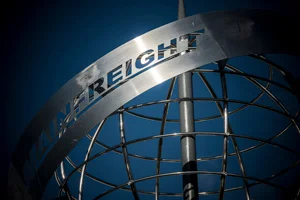What you need to know about NZ Biosecurity
New Zealand is widely well known for its clean, green image. Strict Biosecurity measures and guards New Zealand from unwanted pests and diseases, managing or eradicating them if they do enter the country. New Zealand’s biosecurity system is managed by The Ministry for Primary Industries (MPI) and helps protect the country’s economy, environment, human health, and a range of social and cultural values with strict border control.
What importers need to know
It is important as an importer, that you are aware of your legal responsibilities and regulations when bringing goods into the country, checking with MPI before importing goods that could be considered a biosecurity hazard.
New Zealand has strict biosecurity rules generally around anything of animal or plant origin. However goods such as sea containers, used vehicles, machinery and used tyres are common hiding places for biosecurity risks.
Most processed and unprocessed food products are both permitted to be imported into New Zealand when they must meet minimum regulatory requirements for the safety of food.
When your goods arrive, they will be checked and cleared by MPI’s cargo clearance services before being released.
In this process, goods that don’t comply with New Zealand rules or that do not have the correct paperwork may be treated or even destroyed or sent back to the country of origin at your own cost.
Here are some points to check when you prepare cargo to be shipped to New Zealand
- Pack mixed consignments carefully to reduce risk of contamination
- Check freight containers and packaging for insects or animals
- Address packages clearly and include a New Zealand contact phone number
It is critical that you check and provide correct information. Failing to declare restricted goods can result in a hefty fine.
What exporters need to know
New Zealand’s primary industries generate around $37 billion a year including goods such as food, animal, plant and forest products.
For an exporter, an export certification is a passport for your goods. It helps your products clear importing country borders. Not all countries or goods require an export certificate but it is your responsibilities to provide correct information.
You will need to fulfil different regulations by destination countries, markets or product types. However, it is important to remember that the products being exported overseas must meet New Zealand standards.
It is also important to understand that MPI is working with you and for New Zealand to maintain New Zealand’s reputation for safe food, favourable animal welfare and plant health, and trusted market assurances.
Treating your goods by fumigating prior to exporting is also a way to meet biosecurity requirements.

Where to from here?
-
Need advice on your specific shipment?
Your local Air & Ocean team are here to help.
Talk to our team of experts today! -
Want to learn more?
Go to our collection of articles to learn more about freight
Freight Basics Articles
